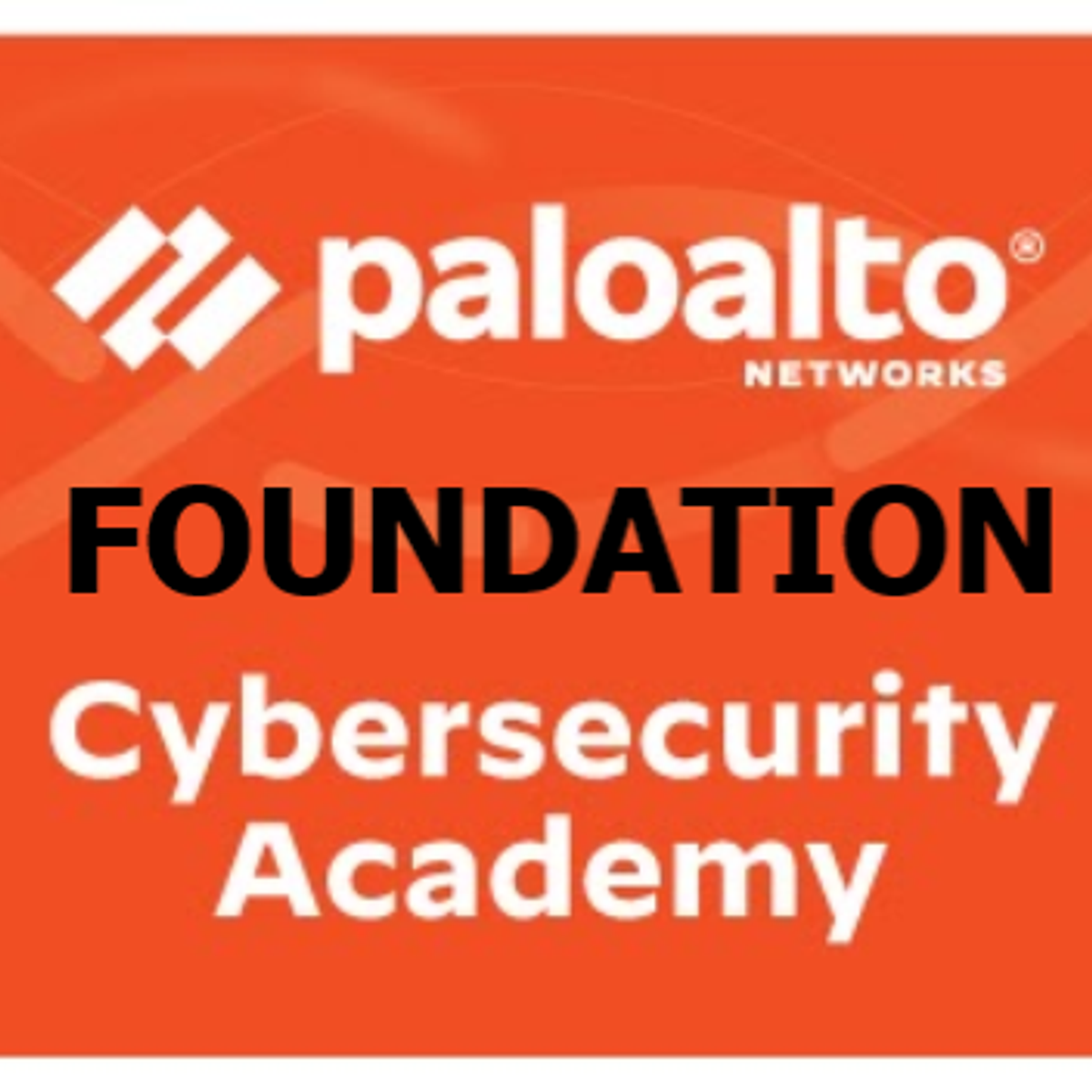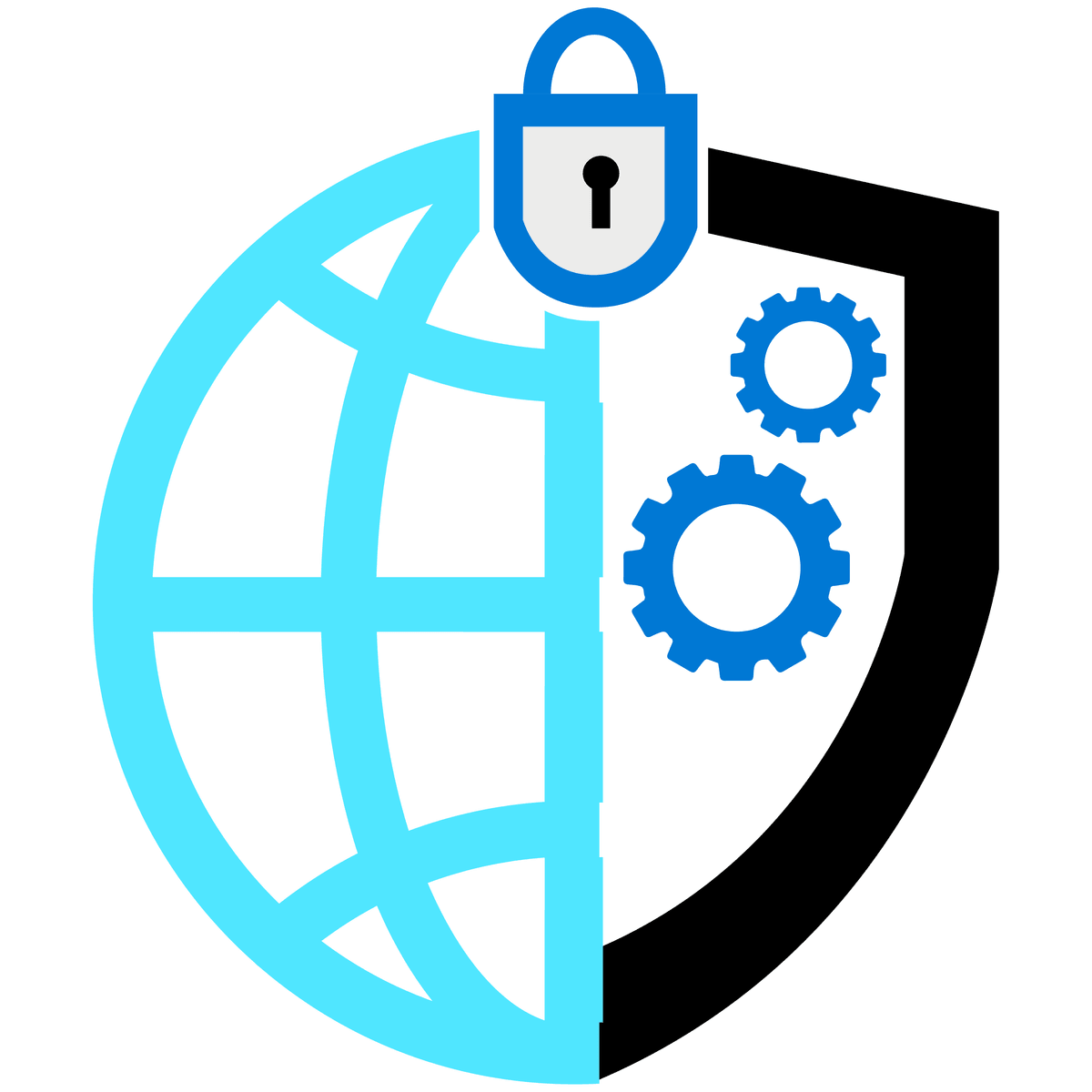Security Program Manager
Security Program Manager: Shaping Organizational Defense
A Security Program Manager plays a pivotal role in safeguarding an organization's digital and physical assets. This role involves designing, implementing, and overseeing comprehensive security strategies and initiatives. [2, 5] They act as the central coordinator for security efforts, ensuring that disparate security projects align with broader business goals and effectively mitigate risks. [2, 14, 25] This position requires a blend of technical understanding, strategic planning, and strong leadership to navigate the complex landscape of modern security threats.
Working as a Security Program Manager can be highly engaging. You'll find yourself at the intersection of technology, business strategy, and risk management, constantly tackling evolving challenges. [32] The role offers the opportunity to make a significant impact by protecting critical information, ensuring operational continuity, and maintaining stakeholder trust. [1, 7] It involves collaborating across various departments, influencing security culture, and leading teams to achieve crucial security objectives. [2, 25]
Core Responsibilities of a Security Program Manager
Understanding the day-to-day duties of a Security Program Manager provides insight into the demands and rewards of this career. These professionals are central figures in an organization's defense strategy, orchestrating efforts to protect valuable assets.
Overseeing Risk Assessment and Mitigation
A primary function is identifying potential security risks across the organization's operations, infrastructure, and data. [1, 3] This involves conducting thorough assessments, analyzing threat landscapes, and prioritizing vulnerabilities based on potential impact. [5, 7] The manager then develops and oversees the implementation of mitigation strategies to reduce these risks to acceptable levels. [1, 5, 32]
They continuously monitor the effectiveness of security controls and adapt strategies as new threats emerge or business needs change. [5] This requires a proactive stance, staying informed about the latest attack vectors and security technologies. [3, 32] Evaluating vendor risk and examining third-party contracts often falls under their purview as well. [5]
For those interested in building a foundation in security program development, understanding frameworks and practical implementation is key.
To gain broader knowledge about building and managing security programs, consider these comprehensive texts.
Ensuring Compliance with Regulations
Security Program Managers must ensure the organization adheres to relevant legal, regulatory, and industry standards. [5, 11] This includes frameworks like GDPR, HIPAA, PCI-DSS, and standards set by bodies such as NIST or ISO. [29, 31] They are responsible for interpreting these requirements and translating them into actionable security policies and procedures. [7, 29]
This involves regular auditing of policies and controls to verify compliance and identify gaps. [5, 3] They often work closely with legal and compliance teams to navigate complex requirements and prepare for audits. [25] Maintaining documentation and reporting on compliance status to leadership are also common tasks. [25, 29]
Staying current with evolving regulations across different jurisdictions is crucial, especially for organizations operating globally. [32] Understanding frameworks like ISO 27001 is often essential for this aspect of the role.
This course provides specific training on auditing against a major information security standard.
Facilitating Cross-Departmental Collaboration
Effective security requires cooperation across the entire organization. Security Program Managers act as liaisons, fostering collaboration between IT, engineering, legal, finance, product development, and other business units. [2, 5, 25] They communicate security needs and initiatives clearly to diverse stakeholders, ensuring everyone understands their role in maintaining security. [1, 3, 7]
Building trust and driving accountability across teams are vital for program success. [2] This involves managing interdependencies between different projects and initiatives to ensure smooth execution. [2] They often need to influence priorities and secure buy-in from various departments without direct authority. [2]
Strong communication and presentation skills are essential for briefing leadership and aligning security efforts with overall business strategy. [1, 2] They help integrate security considerations into various business processes and projects from the outset. [5]
Managing Incident Response Planning
Despite preventative measures, security incidents can still occur. The Security Program Manager is often involved in developing, maintaining, and testing the organization's incident response plan. [1, 3, 5] This includes defining procedures for detecting, containing, eradicating, and recovering from security breaches. [5, 31]
During an actual incident, they may coordinate the response efforts, ensuring swift and effective action to minimize damage. [1, 3] This involves working with technical teams, legal counsel, communications, and potentially external agencies. [25, 27] Post-incident analysis to identify lessons learned and improve future responses is also a key part of the process. [3]
They ensure that the incident response plan is regularly updated to reflect changes in the threat landscape, technology, and organizational structure. Training staff on incident response procedures is another important responsibility. [3, 11]
Understanding specific types of attacks and how to defend against them is crucial for effective incident response planning.
Essential Skills and Competencies
Success as a Security Program Manager hinges on a combination of technical knowledge, leadership abilities, and analytical thinking. Developing a well-rounded skill set is essential for navigating the complexities of the role.
Technical Proficiency
While not always deeply hands-on, a solid understanding of cybersecurity principles, technologies, and frameworks is fundamental. [3, 11] This includes knowledge of network security, operating systems (like Linux), firewalls, encryption, access control, vulnerability management, and cloud security concepts. [1, 3, 5] Familiarity with security tools for monitoring, detection, and response is also beneficial. [5]
Understanding common attack vectors, threat modeling, and security architectures helps in designing effective security programs. [7, 14] Knowledge of compliance frameworks like NIST CSF or ISO 27001 is often required. [3, 15, 18, 29, 31] As technology evolves, staying updated on areas like cloud security and application security is vital. [8, 10, 13, 22]
These courses offer foundational and specific technical knowledge relevant to security management.
Leadership and Communication Skills
Security Program Managers lead initiatives and often supervise teams, requiring strong leadership and project management skills. [1, 11] They must be able to motivate teams, delegate tasks effectively, and drive projects to completion according to plans and timelines. [1, 2, 44] Influencing stakeholders across different departments without direct authority is a key aspect of the role. [2]
Excellent communication skills, both written and verbal, are paramount. [1, 3, 11] They need to articulate complex technical concepts to non-technical audiences, present findings and recommendations to executives, and document policies and procedures clearly. [1, 3, 26] Building strong relationships and fostering collaboration are crucial for success. [2, 26]
Understanding different facets of security program management is crucial for effective leadership.
Analytical and Problem-Solving Abilities
The role demands strong analytical skills to assess risks, analyze security data, and identify vulnerabilities. [2, 11, 26] Security Program Managers must be adept at threat modeling, evaluating the potential impact of different threats, and making informed decisions about mitigation strategies. [7, 14] They need to interpret data from various security tools and reports to understand the organization's security posture.
Problem-solving is a daily activity, whether it's addressing security incidents, resolving compliance gaps, or overcoming project roadblocks. [2] They need to think strategically, anticipate challenges, and develop creative solutions to complex security problems. [5] Prioritizing tasks and managing resources effectively under pressure are also critical abilities. [2]
These books offer insights into the strategic and practical aspects of information security, honing analytical skills.
Formal Education Pathways
While practical experience is invaluable, a solid educational foundation often serves as a launchpad for a career in Security Program Management. Formal education provides structured knowledge in relevant domains.
Relevant Undergraduate Degrees
A bachelor's degree is typically considered the minimum educational requirement for entering the information security field and progressing into management roles. [1, 11] Common relevant degrees include Cybersecurity, Information Technology (IT), Computer Science, or Information Systems. [3, 11]
These programs usually cover fundamental concepts in computer networks, operating systems, programming, data structures, and security principles. [3] Some curricula might offer specializations in areas like network security, digital forensics, or risk management, which are highly applicable. [1]
Degrees in IT management or business administration can also be beneficial, especially for developing the necessary managerial and strategic planning skills required for program management roles. [1, 11] A strong undergraduate foundation provides the technical and theoretical knowledge needed to understand complex security challenges.
Graduate Programs and Specialized Certifications
For more senior roles or specialized positions, employers may prefer candidates with a master's degree. [1, 11] Advanced degrees in Cybersecurity, Information Assurance, or Information Security Management can provide deeper expertise and strategic insights. [1, 3] An MBA with a technology or security focus can also be advantageous for leadership positions.
Beyond degrees, professional certifications are highly valued in the cybersecurity field and can significantly enhance career prospects. [1, 3, 38] Certifications like the Certified Information Systems Security Professional (CISSP) or Certified Information Security Manager (CISM) are often sought after, demonstrating both knowledge and experience. [3, 27, 34, 35, 39]
Other relevant certifications might include CompTIA Security+, Certified Information Systems Auditor (CISA), or specialized certs in cloud security or project management (like PMP or PRINCE2). [38, 39] These credentials validate specific skills and commitment to the profession. Choosing the right certification depends on career goals and specific job requirements. [34]
These books provide insights relevant to professionals aiming for management roles and seeking advanced knowledge.
Research Opportunities for Advanced Studies
For those inclined towards research and academia, pursuing a Ph.D. in Cybersecurity or a related field offers opportunities to contribute to the advancement of knowledge. Research areas might include cryptography, network security protocols, AI applications in security, threat intelligence analysis, or secure software development.
Doctoral programs typically involve rigorous coursework, comprehensive exams, and original research culminating in a dissertation. Graduates often pursue careers in academia, research institutions, or high-level roles in government or industry where deep technical expertise and research skills are required.
While a Ph.D. is not a standard requirement for most Security Program Manager roles, the advanced analytical and research skills developed can be highly valuable, particularly in organizations dealing with cutting-edge threats or developing innovative security solutions. Research experience can also lead to specialized roles in security architecture or strategy.
Online Learning and Skill Development
Beyond formal degrees, online learning offers flexible and accessible pathways to acquire the necessary skills and knowledge for a Security Program Management career. It's an excellent resource for career pivoters, professionals seeking to upskill, and curious learners.
Flexible Learning Options
Online platforms provide a vast array of learning formats, from self-paced individual courses to structured certificate programs and even full degree programs. This flexibility allows learners to study around their existing commitments, whether they are working full-time or pursuing other educational goals.
Self-paced courses offer the ability to learn specific skills or technologies on demand. Structured programs, often offered by universities or industry organizations, provide a more comprehensive curriculum, potentially leading to recognized credentials. OpenCourser aggregates thousands of these options, making it easier to find courses that fit your learning style and career objectives.
Many online courses incorporate hands-on labs, quizzes, and peer interaction, creating an engaging learning experience. The key is to remain disciplined and motivated when learning independently. Resources like the OpenCourser Learner's Guide offer tips on effective self-study habits.
Prioritizing Key Learning Topics
When using online resources, focus on topics directly relevant to Security Program Management. Core areas include risk management, cybersecurity frameworks (NIST, ISO 27001), compliance regulations (GDPR, HIPAA), incident response, and security governance. [3, 5, 27, 35]
Technical foundations in network security, cloud security, application security, and threat analysis are also crucial. [1, 3, 5] Additionally, developing soft skills through courses on project management, leadership, communication, and stakeholder management is vital for a program manager role. [1, 2, 11]
Exploring courses related to specific tools used in security operations or project management software can also provide practical advantages. [25] Platforms like OpenCourser allow you to browse Information Security courses or search for specific skills like "risk management".
These courses cover essential topics like securing specific platforms and understanding advanced concepts.
Building Practical Experience Through Projects
Theoretical knowledge gained from courses is most effective when paired with practical application. Many online courses include hands-on labs or projects designed to reinforce learning. Seek out opportunities to apply concepts in real-world or simulated environments.
Consider personal projects, such as setting up a secure home network, participating in capture-the-flag (CTF) competitions, or contributing to open-source security projects. Building a portfolio showcasing these projects can demonstrate practical skills to potential employers.
Volunteering for non-profits or small organizations needing security assistance can also provide valuable experience. Engaging in online security communities, forums, and attending webinars or virtual conferences helps stay current and network with peers. Practical experience, even self-driven, is crucial for bridging the gap between learning and professional competence. [3]
These books offer practical guidance on establishing and managing security programs.
Career Progression and Opportunities
A career as a Security Program Manager offers significant growth potential. It often represents a mid-to-senior level role, built upon foundational experience in IT or cybersecurity.
Starting Points and Entry-Level Roles
Direct entry into a Security Program Manager role is uncommon without prior experience. Most professionals transition into this position after gaining several years of experience in related technical or analytical roles. [1, 3] Common starting points include Security Analyst, Network Administrator, Systems Administrator, or IT Auditor. [1, 3, 10]
Experience in these roles provides essential hands-on understanding of security operations, technologies, and challenges. [3] Roles in IT project management can also serve as a stepping stone, developing the necessary planning, coordination, and stakeholder management skills. [36, 44]
Building a strong foundation in cybersecurity principles, obtaining relevant certifications like CompTIA Security+, and gaining practical experience are key first steps. [3, 38] Internships or junior positions offer valuable exposure to the field. [3]
Mid-Career Advancement
After gaining foundational experience, professionals can aim for roles like Senior Security Analyst, Security Engineer, or IT Security Consultant. [1, 7j5f8p] These positions often involve more complex tasks, specialized knowledge, and potentially leading smaller projects or teams.
Progressing towards a Security Program Manager role typically requires demonstrating leadership potential, strong project management skills, and a strategic understanding of security's role within the business. [1, 3] Experience managing security initiatives, developing policies, or leading compliance efforts strengthens candidacy. [2, 5]
Pursuing advanced certifications like CISSP or CISM often coincides with this career stage, validating expertise and management readiness. [3, 27, 34] Networking within the industry and seeking mentorship can also open doors to management opportunities. [3]
Leadership Roles and Beyond
Experienced Security Program Managers can advance to more senior leadership positions. [33, 37] Titles may include Director of Security, Head of Information Security, or Vice President of Security. [2, 39] These roles involve greater strategic responsibility, managing larger teams or entire security departments, and setting the overall security direction for the organization. [33]
At the highest levels, individuals might aspire to become a Chief Information Security Officer (CISO) or Chief Security Officer (CSO), joining the executive leadership team. [33, 39, 44] These roles require deep business acumen, extensive leadership experience, and the ability to align security strategy with overarching corporate objectives. [27, 33]
The career path often involves a blend of deepening technical expertise, broadening management skills, and developing a strong understanding of business risk and strategy. [1, 44] Continuous learning and adapting to the evolving threat landscape are essential throughout this progression. [3]
Ethical and Legal Considerations
Security Program Managers operate in a domain fraught with complex ethical and legal challenges. Navigating these requires careful judgment, adherence to principles, and a commitment to responsible practices.
Balancing Security and Privacy
A fundamental tension exists between implementing security measures and respecting individual privacy. Monitoring employee activity, collecting user data for threat analysis, or implementing surveillance technologies can raise significant privacy concerns. [17, 27]
Security Program Managers must design and implement programs that achieve security objectives while minimizing privacy intrusions. This involves understanding data minimization principles, ensuring transparency about data collection practices, and adhering to relevant privacy laws like GDPR or CCPA. [29]
Ethical frameworks and organizational policies must guide decisions on data handling and surveillance. Finding the right balance requires ongoing dialogue with legal teams, privacy officers, and stakeholders to ensure security practices are both effective and ethically sound. [17]
Navigating International Data Protection Laws
Organizations operating globally face a complex web of data protection and cybersecurity laws that vary by country and region. Security Program Managers must ensure their programs comply with all applicable regulations, such as the EU's GDPR, California's CCPA, and others. [29]
This requires understanding requirements related to data processing, cross-border data transfers, breach notification timelines, and individual data rights. [29] Program managers need to work with legal experts to interpret these laws and implement appropriate technical and organizational controls.
Developing globally consistent security policies while accommodating local legal nuances is a significant challenge. Non-compliance can lead to substantial fines, legal liabilities, and reputational damage. [29]
Ethical Dilemmas in Threat Intelligence
Gathering and using threat intelligence can present ethical dilemmas. This might involve monitoring online forums used by potential adversaries, analyzing malware, or sharing threat indicators with other organizations or government agencies. [27]
Decisions must be made regarding the sources of intelligence, the methods used for collection, and the potential impact on privacy or civil liberties. Sharing information requires careful consideration of confidentiality, potential misuse, and legal implications. [29]
Security Program Managers must establish clear ethical guidelines and oversight for threat intelligence activities. Ensuring that intelligence gathering is proportionate, necessary, and legally compliant is crucial for maintaining trust and ethical integrity. [17]
This book delves into intelligence-led security approaches.
Industry Trends Shaping Security Program Management
The field of cybersecurity is constantly evolving, driven by technological advancements and shifting threat landscapes. Security Program Managers must stay abreast of these trends to ensure their programs remain effective.
Impact of AI and Automation
Artificial Intelligence (AI) and Machine Learning (ML) are significantly impacting cybersecurity. [9, 17, 20, 21, 23] AI tools enhance threat detection by analyzing vast datasets to identify anomalies and predict attacks, often faster than traditional methods. [20, 23] Automation streamlines repetitive tasks like log analysis and initial incident response, freeing up human analysts for more complex issues. [17, 20, 23]
However, AI also introduces new challenges. Adversaries can use AI to create more sophisticated attacks, such as deepfakes or adaptive malware. [10, 17] Security teams need AI-specific skills to manage these tools effectively and validate their outputs. [9, 23] Concerns about job displacement exist, although many experts believe AI will augment rather than replace human expertise, shifting roles towards oversight and strategy. [9, 17, 21]
Program managers need to evaluate and integrate AI tools strategically, manage the associated risks, and ensure ethical use. [9, 17] The demand for professionals skilled in both cybersecurity and AI is growing. [9]
Growing Demand for Cloud Security Expertise
As organizations increasingly migrate workloads and data to the cloud, securing these environments has become paramount. [8, 10, 12, 13, 22] Cloud security presents unique challenges, including managing complex multi-cloud environments, securing configurations, controlling access (IAM), and protecting data across various service models (IaaS, PaaS, SaaS). [12, 22]
Trends like Zero Trust Architecture, cloud-native security solutions, and unified security management platforms are shaping cloud defense strategies. [8, 10, 13] Misconfigurations remain a major source of breaches, highlighting the need for robust configuration management and automation. [12]
Security Program Managers require strong expertise in cloud security principles and provider-specific security features. Demand for professionals like Cloud Security Architects is high, and program managers must effectively oversee cloud security initiatives. [13, 22]
Evolving Regulatory Landscapes
Governments and industry bodies worldwide are continually introducing and updating cybersecurity regulations and compliance requirements. [29, 32] Examples include expanding data privacy laws (like GDPR and CCPA), sector-specific mandates (like HIPAA for healthcare or NERC CIP for energy), and evolving frameworks like the NIST CSF. [15, 18, 29, 31]
Staying compliant requires constant vigilance, adapting security programs to meet new obligations, and demonstrating adherence through audits and reporting. [5, 29] The increasing focus on supply chain security and third-party risk management adds further complexity. [15, 28]
Security Program Managers must closely track regulatory developments, interpret their impact on the organization, and ensure the security program evolves accordingly. This requires strong collaboration with legal and compliance teams. [25, 29]
Understanding foundational security programs is key to adapting to changes.
Frequently Asked Questions (FAQs)
Navigating the path to becoming a Security Program Manager often raises specific questions. Here are answers to some common inquiries.
Is a cybersecurity certification mandatory for this role?
While not always strictly mandatory, cybersecurity certifications are highly valued and often preferred or even required by employers. [1, 3] Certifications like CISSP or CISM demonstrate a verified level of knowledge and commitment to the field. [3, 27, 34, 39] They can significantly enhance competitiveness in the job market, especially for management roles. [1, 38] Requirements vary by employer, but relevant certifications often strengthen a candidate's profile. [3, 39]
What entry-level jobs lead to Security Program Manager positions?
Typically, individuals don't start as Security Program Managers. Experience is usually gained in roles such as Information Security Analyst, Network Administrator, Systems Administrator, Security Engineer, or IT Auditor. [1, 3, 10] Experience in IT Project Management can also be a valuable pathway. [36, 44] These roles build the necessary technical foundation and understanding of security operations. [3, 11]
How does this role differ from IT Project Management?
While both roles involve managing initiatives, a Security Program Manager focuses specifically on overseeing multiple, often interrelated, security projects aligned with long-term strategic security goals. [25, 41, 43] An IT Project Manager typically manages individual projects (which might be security-related or not) with defined start and end dates and specific deliverables. [41, 43] Program management is generally more strategic and focused on overarching objectives, while project management is more tactical and focused on execution of specific tasks. [40, 41, 43]
What industries hire the most Security Program Managers?
Security Program Managers are needed across nearly all industries due to the universal need for cybersecurity. However, demand is particularly high in sectors like technology (especially cloud providers and software companies), finance and insurance, healthcare, government and defense contractors, and consulting firms. [1, 3, 29] Critical infrastructure sectors like energy and transportation also heavily rely on robust security programs. [15, 28, 29]
How does remote work affect security program management?
Remote work introduces new security challenges, such as securing home networks, managing endpoint security for dispersed devices, ensuring secure remote access, and addressing the risks of Shadow IT. [12] Security Program Managers must adapt their strategies to cover these expanded attack surfaces. This includes implementing strong access controls (like Zero Trust), enhancing endpoint detection and response (EDR), and increasing security awareness training focused on remote work risks. Managing a remote or hybrid security team also requires effective virtual collaboration and communication strategies.
What are salary expectations at different career stages?
Salaries for Security Program Managers vary based on experience, location, industry, education, and certifications. Entry-level security roles might start lower, but as professionals gain experience and move into program management, salaries increase significantly. [39] Average annual salaries in the U.S. for Security Program Managers often range from approximately $130,000 to $170,000 or higher, with senior roles and leadership positions commanding even greater compensation. [4, 6, 16, 24, 25] ZipRecruiter notes an average around $149,000 as of early 2025, while Salary.com suggests averages closer to $160,000-$170,000. [4, 6, 16, 24]
Embarking on a career as a Security Program Manager requires dedication, continuous learning, and a blend of technical and leadership skills. It offers a challenging yet rewarding path with significant opportunities to make a real impact in protecting organizations from ever-evolving threats. With strong demand projected for cybersecurity professionals, it represents a promising field for those willing to invest in developing the necessary expertise. [1, 3, 14, 33, 37, 39]










